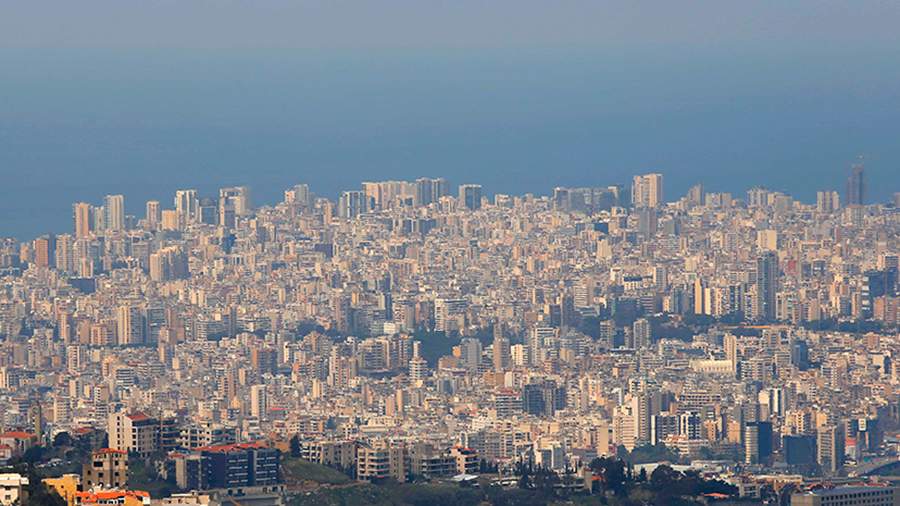Airstrikes: UN captures IDF drones and fighter jets over Lebanon

Withdrawal of Israeli troops from Lebanon
The UN Peacekeeping Force in Lebanon (UNIFIL) daily records violations of its airspace by the Israeli army, the office of the peacekeeping mission told Izvestia.
— The IDF has not informed UNIFIL how long they plan to remain on Lebanese territory. The UN forces continue to believe that the complete withdrawal of Israeli forces from Lebanese territory and the active deployment of the Lebanese Armed Forces to ensure a ban on illegal weapons south of the Litani River are fundamental conditions for long—term peace, the peacekeeping mission added. — Since February 18, UNIFIL has continued to record daily violations of Israeli airspace. Most of them are by UAVs, but sometimes we also see fighter jets in the airspace of southern Lebanon.
In recent weeks, peacekeepers have discovered and recovered dozens of unexploded bombs and weapons, mostly near the Blue Line.
—We are focused on opening roads so that peacekeepers and the Lebanese army can move and patrol safely, but the work we are doing will also help ensure that civilians can safely return to their villages," the office said.
They noted that the continued presence of Israeli soldiers is "a clear violation of UN Security Council Resolution 1701, as well as the presence of illegal weapons." On the night of November 27, 2024, after a year of mutual shelling, a ceasefire came into force between Israel and the Lebanese Shiite movement Hezbollah. The Jewish State had to withdraw its forces from the south of the country within 60 days.
On January 27, it became known that the truce had been extended until February 18. According to the deal, the withdrawal of the IDF was to take place gradually and synchronously with the deployment of the Lebanese army in the southern regions. However, this process depends on the fulfillment of a number of conditions, the main of which is the disarmament of the Shiite Hezbollah movement.
After the truce expired, the IDF maintained a presence in five strategic locations in southern Lebanon along the Israeli border, which angered Beirut. Israeli Ambassador to Russia Simone Halperin previously told Izvestia that the withdrawal of Israeli troops could be postponed if the Lebanese authorities did not fulfill their obligations to ensure security in the border areas.
The UN Interim Force, numbering approximately 10,5 thousand people, has been deployed in the Lebanese-Israeli border zone since 1978. The mission's initial mandate was to confirm the withdrawal of Israeli troops from southern Lebanon and restore the authority of its Government in the south of the country. Subsequently, the UN designated a 120-kilometer temporary zone of the Lebanese-Israeli border, known as the "blue Line" (named after the color of the peacekeepers' helmets).
Hezbollah's readiness to resist
Meanwhile, the funerals of Hezbollah leader Hassan Nasrallah and his associate Hashem Safi al-Din, who were killed by Israel on September 27 and October 4 last year, respectively, took place in Beirut on February 23. The farewell ceremony became the largest event of the movement after the armed confrontation with Israel. Despite the weakening of Hezbollah's position politically and militarily, the funeral demonstrated that the Shiite movement retains support within the country. Crowds of people with his flags filled the 80,000-seat stadium in Beirut.
The Lebanese people and the resistance reject Israel's attempts to maintain a presence in the south of the country, Jamal Wakim, a professor at the Lebanese University, told Izvestia. According to him, Hezbollah will continue to fight until the violations by the Jewish state stop.
In a speech broadcast at the stadium, Hezbollah Secretary General Naim Qassem assured that the movement would not abandon the principles of its predecessors. According to him, the responsibility for the liberation of Lebanese territories now lies with the Lebanese state, while he reserved for Hezbollah the right to take military action if the situation requires it.
Qassem said that the November cease-fire was a thoughtful step, and the current stage of the struggle will require new methods. At the same time, he stressed: the "model of resistance" remains in force, and Lebanon will not be able to achieve sovereignty "without the final expulsion" of Israeli forces. The new leader of Hezbollah has made it clear that the movement intends to focus on diplomatic efforts to oust Israel while maintaining combat readiness.
Senior Iranian officials who attended the funeral in Beirut also made harsh statements. Iranian Parliament Speaker Mohammad Bagher Qalibaf said Lebanon owes its stability and security to Hezbollah and the country's people. He stressed that Tehran is ready to support Lebanon in strengthening its development and security.
Iranian Foreign Minister Abbas Araqchi noted that the farewell ceremony was a demonstration of the strength not only of Hezbollah, but also of the entire axis of resistance. In his opinion, attempts to weaken Hezbollah and its allies are doomed to failure.
Despite the fact that the economic crisis and the fatigue of the population from years of conflict may undermine support for the movement, Hezbollah has a key advantage: the lack of a real alternative and the continued occupation of Lebanese territories by Israeli forces. In an environment where State institutions are weak and other political forces are unable to offer effective resistance to the IDF, the movement retains its importance for certain groups of the population.
The Israeli occupation remains a central element of Hezbollah's rhetoric. Postponing Israel's withdrawal of its troops allows the Shiite movement to continue to position itself as the only force capable of defending the country. Even despite the growing criticism inside Lebanon.
Переведено сервисом «Яндекс Переводчик»
